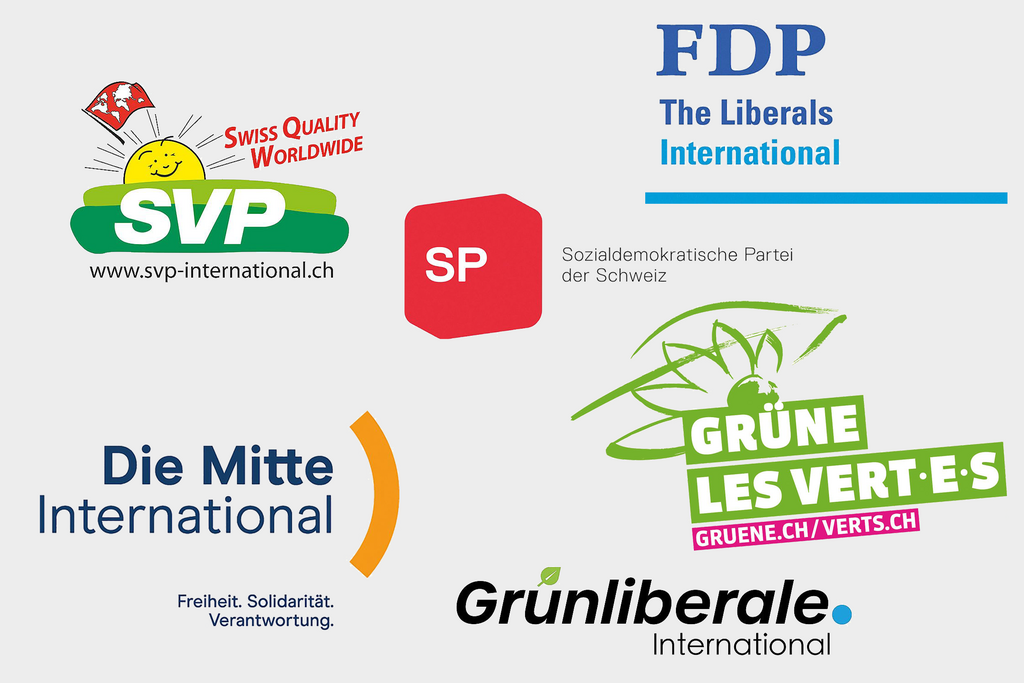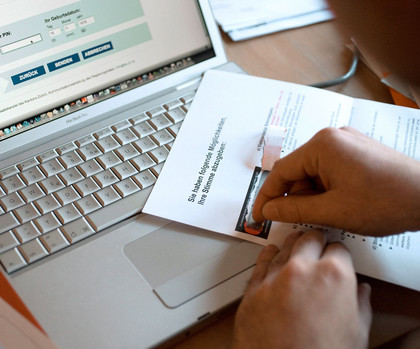Monopoly?
SwissSign Group is part of a joint venture involving Swiss Post, SBB, Swisscom, Six and a number of major banks and insurance companies. It would be keen on issuing its own e-ID – but sceptics such as Anita Fetz (SP/Basel-Stadt) are critical. In a parliamentary debate, the former member of the Council of States said that a private monopoly is the last thing that Switzerland needs. Justice Minister Karin Keller-Sutter dismissed these comments as “illogical”. “If that is a monopoly, what would you call the government?” A number of providers from the private sector competing to develop their own applications is exactly what we want, she said.
E-ID is a cornerstone of the digital transformation, say supporters of the E-ID Act. Switzerland cannot afford to miss the digital boat and not make up ground on other countries. Switzerland is indeed lagging behind comparable countries in e-government. It risks falling even further behind, warn experts. This is Switzerland’s very last chance to keep control of its citizens’ identification data, declared Ruedi Noser (FDP/Zurich) in the smaller chamber, adding that any delay would play into the hands of Apple, Google, Facebook and Amazon.
Eveline Rutz is a freelance journalist based in Winterthur. She mainly writes about political, social and scientific issues.
On 10 July 2020, the Council of the Swiss Abroad (CSA), referred to as the “Parliament of the Fifth Switzerland”, decided to back the new legislation and vote yes in the referendum. However, with 37 to 26 in favour (and 18 abstentions), the decision was far from unanimous.
How much money would E-ID cost the government?
Implementing e-ID would involve a one-off outlay of 7.9 million francs. This money would fund development of the system as well as the establishment of a federal service in charge of transmitting identity and verification information. According to the Federal Office of Justice (FOJ), operating the system is likely to cost around 3.5 million francs a year. However, this would be covered by administrative fees and would therefore have no effect on the government’s balance sheet.





![[Translate to en:]](/fileadmin/_processed_/d/2/csm_Revue_202204_Huehnerfarm_SH-Reportage_3074_7901ca94df.jpg)








Comments
Comments :
Der Bund muss die einzige Stelle sein wo meine Daten hinterlegt sind was, was sie jetzt schon sind.
Der Bund garantiert mit der Vergabe einer E-ID, dass ich der bin den ich vorgebe zu sein. Der Rest funktioniert über meine E-ID die für alle Anderen als Identifikation funktioniert.
So sind meine Daten geschützt, was jetzt auch sein sollten, es kann kein Missbrauch damit betrieben werden. Wenn Andere meine Daten wollen müssen sie sie von mir direkt abholen und ich kann entscheiden ob ich sie geben will oder nicht. Nicht über dunkle Wege einkaufen.
In my perfect world, the federal government would offer a secure and convenient eID. However, I understand the real-world arguments against it. The city of Zug may have found a realistic solution if people are willing to spend some time learning about distributed ledger technology (blockchain).
https://joinup.ec.europa.eu/collection/egovernment/document/swiss-city-zug-issues-ethereum-blockchain-based-eids#:~:text=Since%20November%202017%20the%20Swiss,app%20and%20an%20online%20portal.
Grüss Gott
Ich würde E-ID von E-Voting trennen, weil ich denke, dass E-ID kann man vieleicht in Inland brauchen, das E-Voting ist besonderes für die Auslandschweizer sehr attraktiv. Mit der Post abstimmen ist ja langsam und der Abstimmungstermin ist jeweils vorbei . Mit freundlichen Grüssen, Kokob
La Suisse 2021: Ne savez-vous donc pas qu'ily a des personnes agées qui ne comprennent rien avec les ordinateurs et les téléphones tablettes !
Ich will meine Daten NICHT in den Händen von irgendwelchen pirvaten Interessen sehen.
Und was von Versprechungen zu halten ist, dass die Daten sicher seien in den Händen dieser Anbieter, das sah man in der Vergangenheit immer wieder. Und die Kontrollen durch den Staat kann man getrost vergessen, das funktioniert ja nicht einmal bei der Kontrolle der Restaurants, des Tierschutzes, der Lebensmittelsicherheit und und und.
Weshalb soll sie denn bei den Datenkraken funktionieren. Wer glaubt denn das?
NEIN zu dieser Vorlage und NEIN zum Gegenvorschlag.
https://x-road.global/xroad-world-map
N.B. Je n'ai absolument aucun intérêt personnel ni aucun lien avec l'entreprise.
Une spécialiste reconnue au Québec, Michelle Blanc, m'a suggéré, en lui parlant de ce projet de e-ID, que la Suisse jette un œil sur: X-Road® Data Exchange Layer.
Cordialement, Eric W. Schaffner (Suisse au Québec)
Michelle Blanc M.Sc.
Consultante conférencière et auteure stratégie de gestion et marketing internet. Mon titre académique est http://M.Sc. commerce électronique
Ich bin auch der Meinung des Bundesrats / Karin Keller-Sutter.
Eine E-ID, die von einem Privaten organsiert wird, will ich nicht. Der Staat kann die Sicherheit NICHT garantieren, obwohl es gesagt wird. Werde daher dagegen stimmen.
Ein Fass ohne Boden wird wieder aufgemacht für das Schweizer Volk! Die Schweiz ist auch nicht in der Lage, ein System auf die Beine zu stellen, das den Auslandschweizern ermöglicht, an Abstimmungen teilzunehmen! In solche Systemen werden Millionen verheizt und am Schluss werden sie wieder abgezogen und vernichtet und der Souverän hat bezahlt. Der Bundesrat ist wie so oft völlig überfordert und das Wichtigste: Sie haben keine Ahnung! Man kann nicht Politiker zum Oberhaupt machen und sie versteht nichts von der Materie. also muss es ein klares NEIN sein am 7.März 2021. Leider kann ich nicht abstimmen, denn die Unterlagen werden wie immer zu spät kommen.
Bonjour.
Le problème du délai de renvoi des votations viennent plus du pays où vous habité.
J'habite en France et je reçois les enveloppes de vote un mois a deux mois a l'avance.Donc largement le temps de réagir.
Moi même, je suis contre l'E-ID car le système électronique ne pourra jamais être sur à cent pour cent.
Erhalten auch die Auslandschweizer eine E-ID? Kann man damit entlich elektronisch abstimmen. Falls nein, was soll für uns Auslandschweizer
Eine E-ID können grundsätzlich alle beantragen. Eine E-ID führt aber nicht automatisch zum E-Voting. Es ist lediglich so, dass die E-ID eine künftige E-Voting-Lösung erleichtern könnte.
Derzeit hat die Schweiz sämtliche E-Voting-Versuche sistiert: Niemand kann momentan an nationalen Urnengängen elektronisch abstimmen. In Kürze sollen aber erneut E-Voting-Versuche zugelassen werden. Die "Schweizer Revue" wir in ihrer nächsten Ausgabe über den aktuellen Stand zum Thema E-Voting berichten.